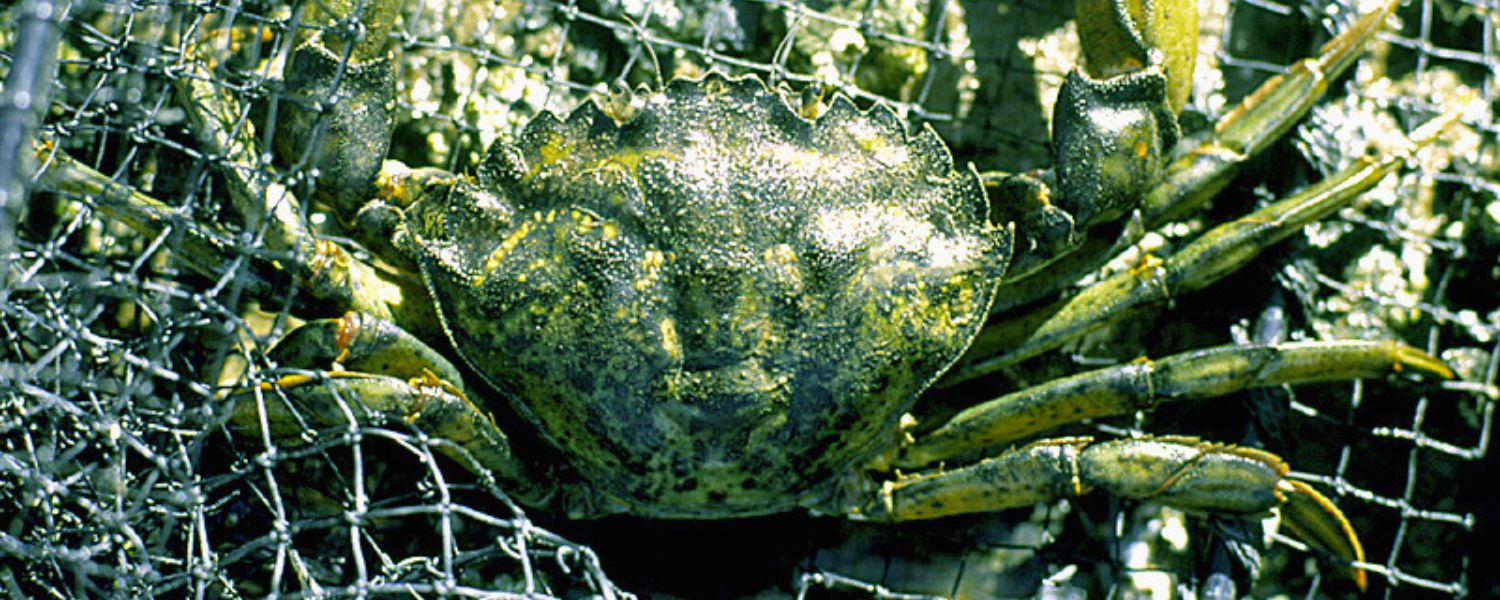
As boaters, we can unknowingly be responsible for spreading aquatic invasive species that can cause tremendous damage to local waterways and ecosystems.
One of the most unwanted species in the world – the European green crab – is prevalent in Canadian and U.S. waters. Boaters can sometimes transport these crabs during the crabs’ multi-month larval stage, introducing a very serious threat to marine and estuary ecosystems, as well as to the fishing and shellfish aquaculture industries.
Measuring in at only 10 centimetres, European green crabs have the potential to unbalance entire ecosystems. They destroy beds of shellfish, burrow in marsh banks and uproot eelgrass meadows, which are vital to the marine ecosystem and provide habitat for juvenile salmon, and they compete for food with native species.
Even with more than a decade of citizen awareness and outreach to curb the spread, the number of European green crabs is growing. Today in Clayoquot Sound, on the west coast of Vancouver Island, over 250,000 European green crabs were caught by the Ahousaht, Tla-o-qui-aht, and Ucluelet First Nations in their territories along with Coastal Restoration Society, and other organizations.
As boaters, we must be aware and responsible, and coordinate our actions across jurisdictions and borders. Always “Clean Drain Dry” – that is, clean your boat (including human-powered ones), your shoes, your trailer and any gear when transporting them between water bodies to prevent the spread of aquatic invasive species. If your vessel uses ballast water, be aware of ballast water regulations in your region, and manage as required by law.
A 5-point checklist to prevent the spread of aquatic invasive species
Before moving to a new waterbody:
- Clean all plant parts, animals, debris and mud from your boat, trailer and equipment (fishing gear, ropes, anchors, buoys), and dispose of removed material responsibly.
- Drain all items that can hold water (buckets, wells, bilge and ballast) on land.
- Dry all parts of your boat, trailer and gear completely.
- Don’t let it loose. It is illegal to transport and release invasive species in B.C. Report invasive species to the Province of BC using the Invasives BC app or call 1-877-952-7277. In Washington state, call 1-888-933-9247 or use the WA Invasives app.
- Stop for inspection. It’s the law! All watercraft must report to watercraft inspection.
Learn More
- Coastal Restoration Society: South Coast European Green Crab Control Project | Watch video
- Pacific Salmon Foundation: Early detection monitoring for European green crabs
Original article published May 2022 in Pacific Yachting.
Image: A European green crab caught in a net. The green crab, a voracious predator, have the potential to release close to 185,000 larvae once or twice a year. Credit: USFWS – Pacific Region, Flickr

We are residents of Gabriola Island .
My husband’s family is First Nations from the Unceded Traditional Territory of the Dzawada’enuxw First Nations of Kingcome Inlet.
We reside in the Unceded Traditional Territory of the Snuneymuxw Nation.
The potential threat that this invasive species, the Asian Green Crab poses to the traditional food sources of First Nations People up & down the coast will be catastrophic
Many of our people rely solely on food sources found in the waters of the Salish Sea.
Everything must be done to eradicate this invasive species.
Thank you for your feedback. We remain committed to raising awareness about the destructive impact of invasive species.